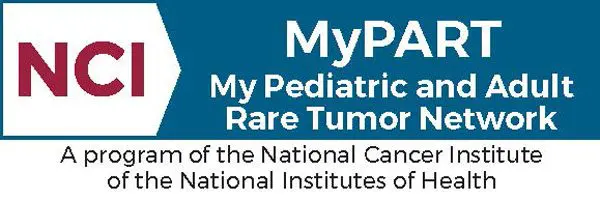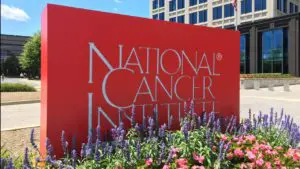Fibrolamellar patients are encouraged to participate in the Natural History Study of Rare Solid Tumors, currently underway at the National Cancer Institute (NCI) in Bethesda, Maryland. The purpose of this study is to better understand how rare solid tumors develop and grow. Natural history studies like this will help researchers learn more about fibrolamellar carcinoma (FLC) and other rare cancers and help shape the design and development of clinical trials to test new treatment options.
How the study works: The Natural History Study of Rare Solid Tumors collects medical information and tissue samples from patients with rare solid tumors, such as FLC. The study also collects important information about the patient’s quality of life, such as pain levels or the impact the tumor has on physical functioning, called patient reported outcomes (PROs). Unlike a clinical treatment trial, this natural history study does not test the safety or efficacy of a new therapy. Instead, it compiles information from patients and their medical records to better understand the “history” or progression of rare cancers over time. Researchers will use this natural history study data to identify disease trends and get new ideas on how to treat rare cancers like fibrolamellar.
Patient benefits: Importantly, participation in this study offers several unique benefits to FLC patients:
- Patients and their doctors will be notified by the NCI research team if any clinically actionable mutations that could suggest viable treatment options are discovered in the study’s genetic testing process.
- Patients can opt to receive care or treatment perspectives from the NCI clinical team through the study’s optional clinical component.
- The NCI clinical team will happily provide second opinions on treatment plans to any interested patients.
- All care and consultation a patient receives from the NCI clinical team will be free of charge to both the patient and their insurance company (see FAQs for more detail).
- If an enrolled patient is invited to travel to the NIH Clinical Center, the study will cover the patient’s travel costs for the visit, including airfare, airport transportation, reasonable hotel accommodations and meal vouchers.
- … And, of course, patients who enroll in this study will know that they are helping to accelerate the development of new treatments for FLC by giving researchers critical information they need to better understand the disease.
Participation process and requirements: Importantly, given current COVID-19 and social distancing requirements, patients can participate in this natural history study from home without needing to travel. Participating patients will be asked to send a saliva sample to NCI, and will be asked to fill out questionnaires about their medical history, their family’s medical history, and how having a rare tumor impacts their life.
With permission, NCI will collect medical records and imaging from patients or their physicians for review by the study team. Patients can either collect that medical information themselves, or let the NCI team gather it on their behalf once the patient signs the appropriate consent forms. NCI will also collect samples of patients’ tumors that may be available from prior biopsies or surgeries. All participants will receive a follow-up form from NCI approximately once a year to record any changes in their health.

This study is being carried out by NCI’s MyPART (My Pediatric and Adult Rare Tumor Network), a group that drives research across a range of pediatric, adolescent, and young adult rare tumors. MyPART and the Natural History Study of Rare Solid Tumors are part of NCI’s “Cancer Moonshot” portfolio. In 2016, President Obama launched the national “Moonshot” initiative to accelerate cancer research efforts and eliminate barriers to progress by broadening access to important data and facilitating collaboration among researchers, patients, advocacy organizations, and pharmaceutical companies. To support these efforts, Congress passed the 21st Century Cures Act in December 2016, authorizing $1.8 billion in funding over 7 years, including $195 million funding for the NCI in fiscal year 2020. Participation of FLC patients in this study creates a valuable opportunity to focus some of that sizeable “Moonshot” research effort on fibrolamellar carcinoma.
To learn more about this opportunity to contribute to research, click here to view additional details about the study and a series of frequently asked questions.

